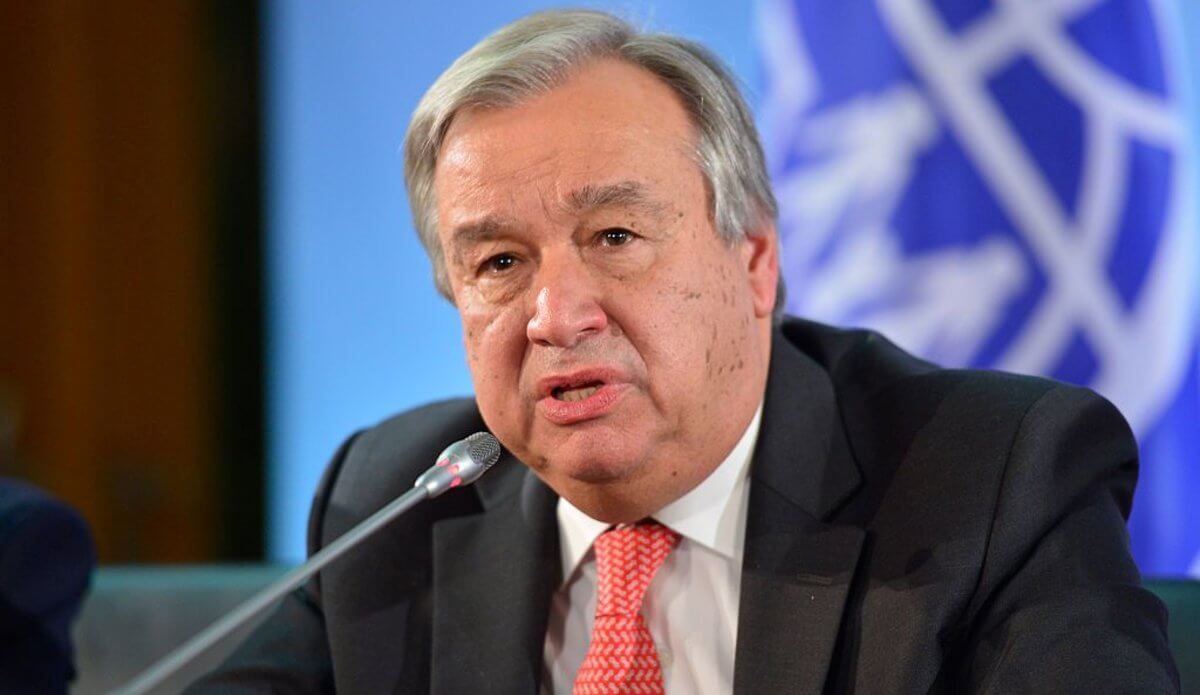The United Nations (UN) said that it is “deeply disturbed” by the Taliban’s decision to ban female Non-Governmental Organisation (NGO) workers, adding that the decision will obstruct the work done by international and domestic organisations to help vulnerable communities.
The statement released by UN Secretary-General António Guterres’s spokesperson, Stéphane Dujarric, said international and Afghan NGOs are assisting over 28 million Afghans that rely on such aid to survive.
In this regard, he said, “The reported ban on women working with the international community to save lives and livelihoods in Afghanistan will cause further untold hardship on the people of Afghanistan.”
To continue international and domestic aid efforts, he highlighted the need to ensure “full, safe, and unhindered access for all aid workers, including women.”
American officials should stop interfering in our internal matters.
— Zabihullah (..ذبـــــیح الله م ) (@Zabehulah_M33) December 25, 2022
All those institutions wanting to operate in Afghanistan are obliged to comply with the rules and regulations of our country.
1/2
Separately, the UN humanitarian coordination office in Afghanistan lamented the announcement, adding that it was a “clear breach of humanitarian principles.” The release said UN representatives will meet with Taliban leaders to “obtain clarity on the reported order.”
To this end, the UN mission in Afghanistan’s head, Ramiz Alakbarov, met with the Taliban’s economic Minister, Din Mohammad Hanif, on Monday to convey the importance of “humanitarian assistance and removing barriers.”
According to reports, the Taliban directed all local and foreign NGOs to send back their female employees on Monday. The Taliban claimed it had received “serious complaints” about the “non-observance of the Islamic hijab.”
In this regard, the Taliban’s Ministry of Economy warned that authorities would rescind the licenses of organisations that have failed to implement the order.
However, women workers quoted by RFI rubbished the claims, saying the offices are gender segregated and women are “properly dressed.”
As a direct consequence of the order, at least seven aid groups have suspended their operations in Afghanistan.
Three foreign aid groups – Save the Children, Refugee Council, and CARE – released a joint statement on Sunday, saying that they could not effectively function to assist children, women, and men in Afghanistan without its female workers. As a result, the organisations declared that they would suspend operations as they assessed the impact of the announcement.
We do not allow anyone to talk rubbish or make threats regarding the decisions of our leaders under the title of Humanitarian aid.
— Zabihullah (..ذبـــــیح الله م ) (@Zabehulah_M33) December 25, 2022
2/2 pic.twitter.com/7L1PePmzP1
In addition, the European Union foreign policy chief Josep Borrell also spoke out against the ban, adding that the bloc will assess the announcement’s impact on its aid programme.
Similarly, Borrell’s spokesperson Nabila Massrali lamented the impact of the decision on Afghan’s “welfare, rights, and freedoms.” She added that the announcement is “another harsh restriction” on women’s freedoms and rights.
The United States Secretary of State Antony Blinken called the ban “devastating,” saying it will “disrupt vital and life-saving assistance to millions.”
Despite promising that it would not introduce repressive policies that characterised its rule in the 1990s, the Taliban has gone back on its word and launched several attacks on human and women’s rights. Earlier this month, the Taliban banned women from universities across Afghanistan, saying that the change was necessary to protect “national interests” and women’s “honour.”
The Taliban has forced NRC, Save, Care and many others to suspend operations in #Afghanistan. Banning NGOs from employing women crosses a humanitarian red line. @NRC_Norway cannot and will not operate without our 470 female staff https://t.co/0UPKyIW2m5
— Jan Egeland (@NRC_Egeland) December 25, 2022
Following the announcement, the Taliban also forcibly closed down two educational centres in Herat and Kabul on Monday, where women undertook vocational training in business, robotics, and coding.
Over the past few months, Afghan women have been barred from travelling long distances without a male chaperone, barred from workplaces, banned from obtaining driving licenses, and ordered to cover their faces from head to toe in public spaces. It has also eliminated the Ministry of Women and replaced it with the Ministry of Vice and Virtue.
In November, the Taliban also announced a ban on women’s entry into parks and gyms.
The West insists that it will only consider removing sanctions if the Taliban commits to improving human rights, particularly those of women and girls, and ensuring that Afghan soil is not used by terrorists. This has severely crippled the war-torn country’s economy, given that it has historically depended on foreign aid for over 80% of its budget. It also remains unable to access around $10 billion in frozen central bank assets.

